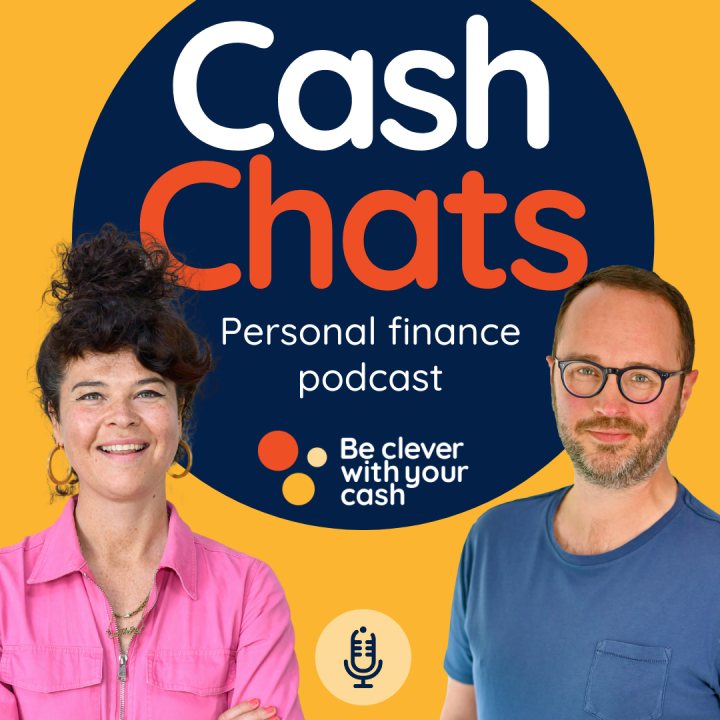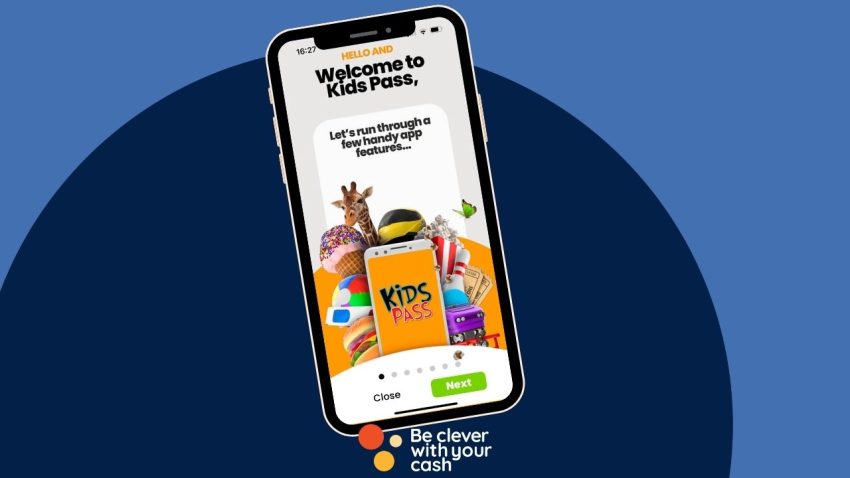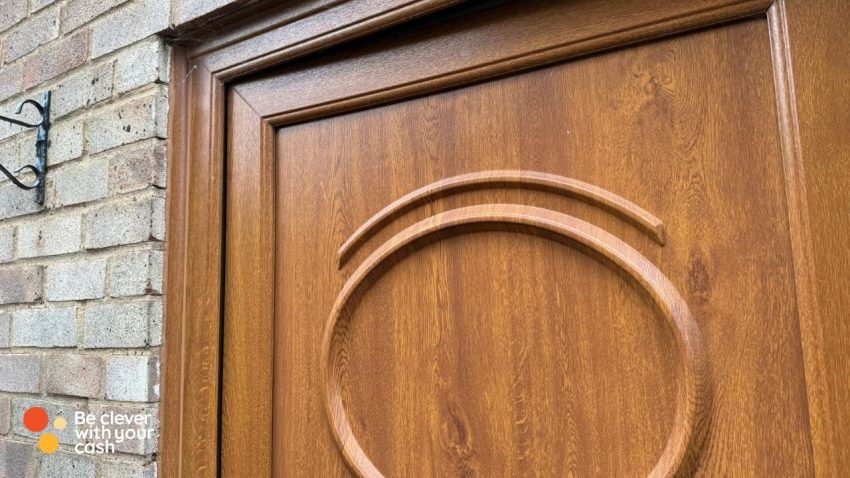Smart Money People launch Kids Cash Challenge
As the use of card and contactless payments rise, those growing up today are more accustomed to the idea of digital money rather than physical notes and coins.
However, physical cash is still an important part of money management. Especially as more households opt to use cash to track their spending in the cost of living crisis.
From setting up your own tuck shop to creating a coin caterpillar, find out how each activity in the Kids Cash Challenge works.
Some articles on the site contain affiliate links, which provide a small commission to help fund our work. However, they won’t affect the price you pay or our editorial independence. Read more here.

What is the Kids Cash Challenge?
Financial review site Smart Money People has launched a Kids Cash Challenge to help teach children about money over the school holidays.
The challenge includes 10 fun activities to keep your little ones entertained while helping them become money masters.
The Kids Cash Challenge is aimed at those aged 3-7 years old. And you can tailor the activities to their interests to help them better understand.
Here’s our take on the suggested tasks.
1. Set up a tuck shop at home
Creating your own tuck shop over the school holidays is a great way to teach your little ones about cash.
Whether it’s fruit, juice boxes, crisps or chocolate, give each item in your snack stash a price. (You can set the rates according to your child’s understanding of money.)
You’ll then need to give your children a budget so that they can make a purchase when they want a snack.
For kids totally new to cash, start off with simple small coin amounts e.g. 1p, 2p, 5p,10p. And once they’ve mastered this, you can move on to larger amounts that need change.

Make your own money
If using physical cash isn’t possible, you can try getting crafty and make your own money. You can keep the currency as pounds or try making your own house currency.
If you opt for a new currency try and keep the values the same for example 1p would have an equivalent coin in your currency (just a different name!)
2. Play spare change snap
Spare change tends to mount up over time in purses, sofas or even a designated coin pot.
If you have any spare coins lying around, gather them together for a game of spare coin snap with the kid.
You can play by asking your child to sort the coins into matching shapes, sizes or colours. It’s a fun way to introduce them to different coins and their values.
 Featured switching deal
Featured switching deal
 Customer rating
3.8/5
Customer rating
3.8/5
- Switch bonus£200
- Offer endsUnknown
- Extra bonus£25 Amazon Gift Card
- FSCS Protected? Yes
- Switch bonus requirements Switch using the Current Account Switch Service and close your old account within 60 days of starting the switch
- Deposit requirements Deposit £1,500 in the first 60 days from opening the account
- Direct debits transferred over Set up two Direct Debits before or after the switch from a selected list of household bills
- Existing customers? Can't have held any Santander current account on 1 January 2025
- Restrictions Can't have received a switching bonus from Santander already, offer limited to once per person
- Eligible accounts Open a new or hold an existing Everyday, Edge, Edge Up or Edge Explorer current account
- £25 Amazon Gift Card requirements To qualify for the gift card, you need to complete a full switch using CASS, and make five debit card transactions within 30 days of opening the account
Get the best of our money saving content every week, straight to your inbox
Plus, new Quidco customers get a high paying £18 welcome offer

3. Create a coin caterpillar
This one is for art fans! To create a coin caterpillar you’ll need to line up 5-10 coins in a row (they don’t have to be even or in order). Next place a sheet of paper over the top and use a crayon to rub over the coins.
This will create an imprint on the page and eventually reveal your own cool coin caterpillar.
Afterward, you can add features like a face, some legs and antennae to bring your coin caterpillar to life.
You could also ramp up the challenge by asking your child to add up the value of their caterpillar.
4. Be a checkout cash champion
What happens at the checkout in shops tends to go over children’s heads – as they’re usually not tall enough to see what’s going on.
The next time you hit the shops, try to get your young one involved in making a cash payment.
Whether it’s simply talking through the payment process and counting out your change. Or, for older children, getting them to pay for the items and interact with cash firsthand can be a great way to learn and build their confidence managing money too.
Our podcast
Listen to Cash Chats, our award-winning podcast, presented by Editor-at-Large Andy Webb and Deputy Editor Amelia Murray.
Episodes every Thursday.

5. Try a school holidays pocket money savings challenge
Giving your child the chance to manage their own money can help them better understand key financial skills like budgeting and saving.
The school holidays could be a good chance to trial giving them pocket money to help boost their money skills.
You could also help them learn about setting money goals (like saving for a new toy) and making a plan to put their pocket money away so they can buy it.
Adding on incentives like, paying a bonus if they reach their target helps encourage their savings habits too.
6. Play supermarket sweep
Heading to a supermarket (especially over the school holidays) can feel daunting. But this cash challenge is a sure fire way to make the experience more fun.
Getting your little ones involved in the shop – whether that’s making a list and helping to budget or being on price watch duty around the store – can help them learn on the go.
If doing a full shop isn’t possible you could try shopping around one specific recipe. For example if you wanted to make cupcakes, getting your little ones to come up with a list in a certain budget and then hitting the store together to buy everything and pay in cash.
You could even take this a step further and get them to sell any treats they make for their mini tuck shop (see activity no.1 for more details!)
7. Give your cash a home
Having a designated place to keep your physical cash safe, like a purse or wallet, is really important for teaching children how to be responsible with money.
You can buy them a small wallet or purse. Or, even try getting them to make their own to add a personal touch.
8. Head to the arcade
Arcades may seem like all fun and games, but they’re also the perfect environment to help kids learn about money.
For example, using coins in a slot machine can help them learn about the value of different coins. Playing on different machines can also help them understand the concept of budgeting and making sure they have enough money to use the ones they want.
Allowing them to help you get change from a note, where possible, can also help them understand that the same value of money can be held in different forms.
9. Open a children’s bank account
Opening a child bank account or children’s savings account can help them understand managing money over the school holidays.
It’s a great way to introduce them to the concept of banking, how it works and why having an account is important for managing money.
You could tie this into some of the other cash challenges, for example, showing them how to deposit their summer holiday pocket money (see challenge no. 5).
10. Make summer holiday chores fun
You can help your kids learn more about the idea of earning money by offering to pay them for chores they do over the summer break.
They can put their money towards their savings or to help them budget for things they’d like to buy during the school holidays.
Generally, this activity helps them become more independent with money and helps them take responsibility for keeping it safe and reaching their financial goals.
For more information about the Summer Kids Cash Challenge, head over to the Smart Money People website.







No response at all. You’re now encouraging children as young as 4 to gamble as a good way to learn about money.
With the greatest of respect, you shouldn’t be advocating taking small children anywhere near amusement arcades and mindlessly feeding cash into machines, and I cannot believe you’re advocating gambling on a site like this.
For a start, this isn’t being “clever with your cash”, as the machines are loud and flashy to entice you to to play in the first place, and then are obviously weighted to pay out less than you put in over time. They’re a long way from being the “perfect environment” to learn about money, apart from how to make it disappear. I’m not even sure it would be legal. Then of course you could be setting them off on the path of addiction. Putting a pound coin in and seeing ten or twenty magically pour out would be a powerful but dangerous lesson to learn, that it’s somehow easy money. Would you encourage them to play the lottery too?
Even taking them to a betting shop, where the odds are properly displayed and you can choose exactly what outcome in something you’re already interested in you want to bet on would be more appropriate for your ideas, and that would definitely be illegal.
I’d be interested to hear your thoughts in response, and those of Andy Webb too, as this idea is frankly horrifying.